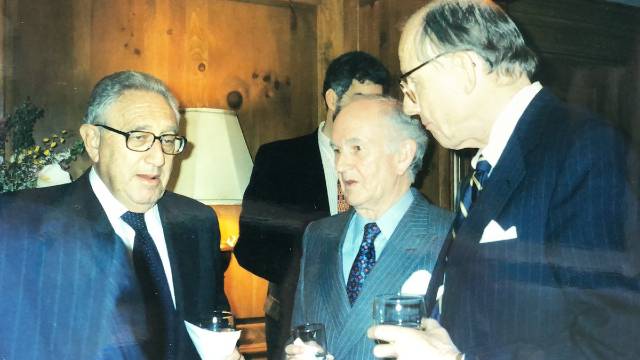Home » Commentary » Opinion » Vale Owen Harries (1930-2020)
· Ideas@theCentre

Owen Harries — Australian conservative academic, senior Fraser government adviser and diplomat, founding editor of the Washington-based National Interest, contributor to the leading international publications and CIS senior fellow (2001-06) — died last week at the age of 90. His is a voice genuine free thinkers will truly miss.
A prominent hawk across Sydney campuses during the Vietnam War, Harries became the intellectual powerhouse of Malcolm Fraser’s government. According to one press report in 1980, he was “the most influential man in Canberra in terms of intellectual input into high policy.” In 1985, Irving Kristol — the founding father of American neo-conservatism — hired Owen to set up the Washington-based The National Interest magazine.
Harries had been a Cold War warrior, but with the collapse of Soviet communism, he made his case for a restrained and measured foreign policy realism. Far from embracing a global leadership role, the US should pick and choose where it throws its weight around in the world. Democracy was “not an export commodity,” but a “do-it-yourself enterprise” that required special circumstances and conditions, he said.
All this meant, among other things, that Harries emerged as a leading critic of the decision to invade Iraq in 2003. Whereas a broad cross-section of American Republicans and Australian Liberals supported the ‘liberation’ of Iraq, Harries voiced skepticism from the outset.
“What would worry me about Iraq is what America would do after the downfall of Saddam Hussein,” he told the CIS magazine Policy several months before the invasion.
“To be responsible for a country of that size, and to put something together that would work with the Kurds, Shiites and Sunnis, would involve America in nation building, and I doubt it could be brought off successfully.”
He was right. Iraq would show the limitations of America’s vast military power: its capacity to destroy was enormous; its ability to control what it had defeated much less so.
I knew Owen well for the past 25 years. I never completed a conversation with him without having been made to think about something that mattered.
Indeed, those who knew him well, including CIS staff and members, longed to question him, and to heed his words, often sharp and sound, always untainted by vanity or insecurity, rich in experience, usually wise, invariably witty. He was a good listener, too, quick to catch the significance of any point and to develop the argument. He was a profoundly decent and modest bloke, who never had any urge simply to score points or put down anyone with whom he disagreed.
As Francis Fukuyama, Paul Kelly in The Australian, Andrew Clark in the Australian Financial Review, the ABC’s Phillip Adams, and Michael Easson in the Sydney Morning Herald, have all pointed out this week, Owen was a true public intellectual.
Vale Owen Harries (1930-2020)